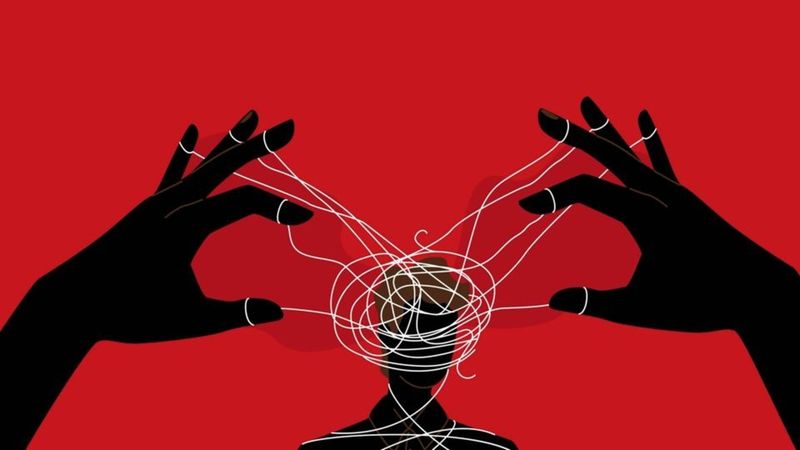17 Reasons Why Narcissists Struggle With Intimacy in Long-Term Relationships
They crave your attention, demand your loyalty, and expect your constant support. But when it comes to real intimacy—emotional closeness, vulnerability, and connection—they suddenly pull away.
Go cold. Shut down. It’s confusing, heartbreaking, and repetitive. But there’s a reason narcissists struggle so deeply with intimacy—and it’s not about you.
In long-term relationships, true intimacy means being known fully—and that’s exactly what terrifies a narcissist. Vulnerability threatens their sense of control, perfection, and emotional safety.
Let’s unpack 17 core reasons narcissists resist deep emotional connection, and how their behavior affects you over time.
Whether you’re dating, married, or healing from a narcissistic partner, these insights will give you the clarity you need to stop blaming yourself—and start understanding the emotional dynamics at play.
Because it’s not that you’re “too much.” It’s that they never learned how to let someone in.
1. Fear of Vulnerability

True intimacy requires being emotionally open and raw—something narcissists avoid at all costs to protect their fragile ego. Vulnerability feels like a threat rather than a pathway to closeness. They may crave connection but fear being judged or hurt if they reveal their true selves.
This fear creates a cycle of emotional avoidance. Rather than building bridges, they erect walls that keep others at a safe distance. They might share superficial details, yet leave out deeper emotions or thoughts.
Ultimately, this self-protective behavior undermines their relationships, leading to loneliness and dissatisfaction. They miss out on the joy and comfort that come from genuine vulnerability and trust.
2. Avoidance of Being Seen

Narcissists often wear a charm like a mask. They project an image that’s carefully crafted to win admiration, but it hides their real self. Letting someone get too close threatens this curated identity, making them feel exposed and vulnerable.
Their fear of being truly seen can lead to keeping emotional and physical distance in relationships. They may seem present but remain emotionally unavailable, leaving partners feeling isolated.
This behavior creates a barrier to genuine connection, as they’re unable to let down their guard and allow others in. Over time, this leads to relationships that feel hollow and unsatisfying.
3. Closeness Equals Control

For narcissists, closeness can feel like a loss of control. They equate intimacy with vulnerability and fear being at the mercy of another’s needs or emotions. This can lead to dominating behavior or, conversely, withdrawal to maintain their sense of power and autonomy.
They might engage in power struggles, keeping partners at arm’s length to avoid perceived threats to their independence. This results in a dynamic where equality feels unstable and intimidating.
Instead of sharing space and power, they might prefer relationships where they can dictate terms, leaving little room for genuine partnership. This control leads to a lack of emotional safety, stifling true intimacy.
4. Intensity vs. Intimacy

Narcissists often confuse intensity with intimacy. They might bombard partners with attention, gifts, and grand gestures in the beginning. It’s thrilling but often a form of manipulation, not genuine connection.
This initial rush creates a false sense of intimacy that fades over time, leaving partners confused and yearning for real emotional depth. The cycle of love-bombing followed by emotional withdrawal can be exhausting.
True intimacy means steady, consistent presence and understanding, which isn’t built overnight. Narcissists struggle to maintain this, as the reality of day-to-day emotional engagement feels mundane compared to the initial high.
5. Distance as Self-Protection

Narcissists use emotional distance as a shield. Pulling away, shutting down, or stonewalling helps them avoid the risks associated with being vulnerable. This behavior is a double-edged sword; it may protect them, but it damages the relationship.
By maintaining an emotional barrier, they prevent partners from connecting on a deeper level. This can lead to frustration and loneliness for both parties. The relationship becomes a dance of closeness and withdrawal, leaving partners unsure of where they stand.
This defensive tactic ultimately undermines potential for real intimacy, leaving relationships feeling superficial and unfulfilling.
6. Intolerance for Emotional Imperfection

Narcissists often struggle with accepting emotional imperfections in themselves and others. Needs, flaws, or emotions can feel unsettling; instead of embracing them, they might criticize or dismiss them altogether.
This intolerance creates a hostile environment where partners feel judged and pressured to be perfect. It stifles emotional growth and authenticity. Vulnerability becomes a liability rather than a strength.
In avoiding emotional messiness, they miss out on the beauty of real connections, which are built on understanding and accepting each other’s flaws. This resistance to imperfection makes sustaining intimacy challenging.
7. Cycle of Idealization and Devaluation

Narcissists often start relationships by idealizing their partners. Everything seems perfect during the honeymoon phase, but this is unsustainable. Eventually, they begin to notice flaws and imperfections, leading to devaluation.
This cycle creates instability, as partners are left feeling cherished one moment and criticized the next. The emotional roller coaster prevents the formation of a stable, trusting relationship.
The cycle of idealization and devaluation keeps partners off-balance, making them feel they must continually prove their worth. It erodes trust and intimacy, leaving partners feeling unworthy and misunderstood.
8. Lack of Emotional Depth

Narcissists often find surface-level affection sufficient and struggle to see the value of deeper emotional connections. They might prioritize appearances and admiration over genuine emotional engagement.
For them, emotional depth can feel unnecessary or even threatening. This perspective can make relationships feel shallow, as they avoid delving into meaningful conversations or shared experiences.
This lack of depth leaves partners feeling unfulfilled and disconnected, as the emotional richness needed for true intimacy is absent. Relationships become about maintaining an image rather than nurturing a soulful connection.
9. Struggle with Empathy

Empathy is crucial for intimacy, but narcissists often struggle to feel or express it. Without empathy, relationships become one-sided, with partners giving much more than they receive.
The inability to empathize makes it difficult for narcissists to fully understand or support their partners’ emotions and needs. This imbalance can lead to frustration and resentment.
Without the emotional reciprocity that empathy fosters, relationships can feel unfulfilling and devoid of genuine connection. This struggle makes it challenging for narcissists to build and sustain lasting, intimate relationships.
10. Sabotaging Real Connection

Narcissists often sabotage connections when they feel too real. A deep conversation or moment of vulnerability can make them uncomfortable, leading to mockery, subject changes, or retreat.
This self-sabotaging behavior prevents partners from feeling truly known and loved, as the narcissist avoids emotional exposure. It creates a relationship dynamic where genuine intimacy is stifled.
By avoiding real connections, narcissists miss out on the profound joy and fulfillment that comes from being truly seen and loved. This sabotaging behavior leaves relationships feeling fragmented and incomplete.
11. Fear of Abandonment

Narcissists often fear abandonment but struggle to attach safely. This creates a toxic loop of clinging and pushing away, leaving partners feeling constantly on edge.
The fear of being left fuels this cycle, as the narcissist’s actions often push partners away, reinforcing their fear. The relationship becomes a volatile mix of closeness and distance, preventing secure attachment.
This fear-driven dynamic makes sustaining intimacy difficult, as partners feel they can never fully relax or trust the relationship’s stability. The constant emotional turbulence erodes the foundation of true intimacy.
12. Hoarding Emotional Space

Narcissists often see emotional space as a zero-sum game. Your feelings might feel like competition rather than an opportunity for connection. Instead of joining you in your emotional experience, they shift the focus back to themselves.
This behavior leaves partners feeling unheard and unseen, stifling emotional intimacy. The relationship becomes centered around the narcissist’s needs and desires, leaving little room for genuine partnership.
By hoarding emotional space, they prevent relationships from achieving the mutual sharing and understanding that true intimacy requires. This dynamic creates distance and frustration, undermining the relationship’s foundation.
13. Seeking Admiration Over Connection

For narcissists, being admired is often more important than being truly connected. They crave attention and praise, but shy away from being known on a deeper level.
This focus on admiration over genuine connection can create a superficial relationship dynamic. Partners may feel valued for what they provide rather than for who they are.
By prioritizing admiration, narcissists miss out on the depth and fulfillment that comes from authentic emotional connections. This dynamic leaves relationships feeling hollow and lacking the warmth and closeness of true intimacy.
14. Manipulation Over Communication

Instead of expressing needs or fears openly, narcissists often resort to manipulation to control situations. This leaves little room for honest emotional exchange, as partners feel they are being managed rather than understood.
This manipulative behavior prevents the open communication necessary for building trust and intimacy. Partners may feel manipulated and question the narcissist’s sincerity.
By avoiding direct communication, narcissists miss out on the opportunity to build deeper connections based on trust and mutual understanding. This behavior undermines the relationship’s potential for genuine intimacy.
15. Fear of Dependency

Narcissists often fear dependency, viewing it as a weakness. Needing someone else threatens their sense of self-sufficiency, leading them to push others away.
This fear of dependency prevents them from leaning into relationships and allowing themselves to be supported. Partners may feel rejected or unimportant, as their emotional support is often dismissed.
By avoiding dependency, narcissists miss out on the strength and resilience that come from mutual support and reliance in relationships. This fear-driven behavior creates emotional distance, making true intimacy difficult to achieve.
16. Lack of Emotional Growth

While healthy relationships grow and evolve, narcissists often remain emotionally stagnant. Their rigidity and unwillingness to mature emotionally can create distance over time.
This lack of growth prevents relationships from deepening, as the narcissist resists the changes and adaptations necessary for long-term intimacy. Partners may feel frustrated by the emotional standstill.
Without emotional growth, relationships can become monotonous and unfulfilling. The inability to evolve together stifles the potential for true intimacy and connection, leading to dissatisfaction for both parties.
17. Conditional Love

Narcissists often view love as conditional, performative, and self-serving. Their version of love is more about fulfilling their own needs than building a mutual, caring connection.
This conditional approach to love makes relationships feel transactional rather than genuine. Partners may feel they must earn love rather than receive it freely, leading to insecurity and dissatisfaction.
By placing conditions on love, narcissists miss out on the joy and fulfillment of unconditional, mutual love. This dynamic creates emotional barriers that hinder true intimacy and connection.






